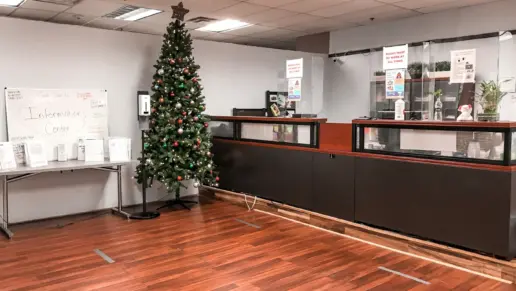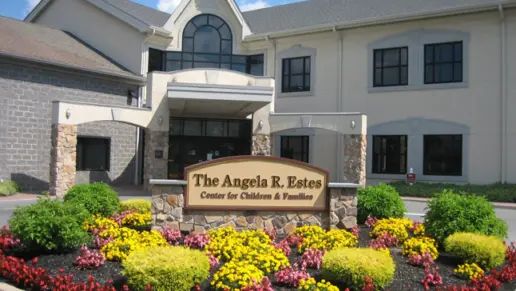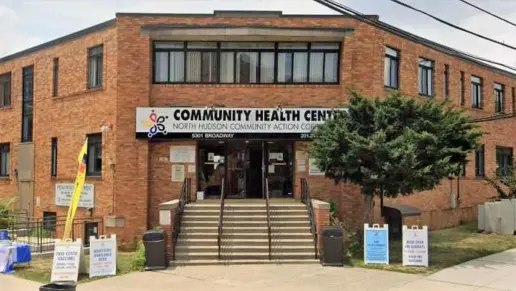About Monmouth County Social Services
Those discharged from drug or alcohol abuse treatment in Asbury Park, New Jersey, can receive a variety of aftercare services from Monmouth County Social Services. They offer essential programs like food stamps, TANF, general assistance and Medicaid. Their services are available for families, children, pregnant teenagers and high risk mothers. They also provide counseling and other support services.
They offer short term case management for adults without children as well as for families in need of financial assistance for housing, food, childcare, medical care and other necessities. Their social workers help families and individuals in locating resources that are appropriate for their needs. They also help them get the information and referrals they need.
They provide prevention assistance to eligible individuals and families receiving SSI, GA or TANF for those who are homeless. This aid might pay for unpaid rent, utilities or moving costs. Additionally, their Domestic Violence Initiative offers comprehensive services for victims that assist them in locating housing and other necessary support.
Their boarding home services ensure that personal hygiene and housing laws are followed. Social workers come to the facility to monitor conditions, investigate complaints and assess residents’ needs in order to facilitate relocations when necessary.
Their Medical Review Team creates social assessments and gathers medical records to confirm Medicaid eligibility for individuals under 65. Comprehensive screenings are carried out through the Early Periodic Screening, Diagnosis and Treatment program for children whose families have recently enrolled in TANF and Medicaid. All these services ensure that recovery from addiction remains long term and enhance the general well being of the community members.
Rehab Score
Other Forms of Payment
Financial aid can take many forms. Centers may have grants or scholarships available to clients who meet eligibility requirements. Programs that receive SAMHSA grants may have financial aid available for those who need treatment as well. Grants and scholarships can help you pai for treatment without having to repay.
Addiction Treatments
Levels of Care
Treatments
The goal of treatment for alcoholism is abstinence. Those with poor social support, poor motivation, or psychiatric disorders tend to relapse within a few years of treatment. For these people, success is measured by longer periods of abstinence, reduced use of alcohol, better health, and improved social functioning. Recovery and Maintenance are usually based on 12 step programs and AA meetings.
Drug rehab in New Jersey is the process of addressing the complex issues involved with addiction. Challenges are identified and addressed through individual and group counseling. Participants learn how to manage these issues without the use of substances.
A combined mental health and substance abuse rehab has the staff and resources available to handle individuals with both mental health and substance abuse issues. It can be challenging to determine where a specific symptom stems from (a mental health issue or an issue related to substance abuse), so mental health and substance abuse professionals are helpful in detangling symptoms and keeping treatment on track.
Opioid rehabs specialize in supporting those recovering from opioid addiction. They treat those suffering from addiction to illegal opioids like heroin, as well as prescription drugs like oxycodone. These centers typically combine both physical as well as mental and emotional support to help stop addiction. Physical support often includes medical detox and subsequent medical support (including medication), and mental support includes in-depth therapy to address the underlying causes of addiction.
Programs


Clinical Services
Whether a marriage or other committed relationship, an intimate partnership is one of the most important aspects of a person's life. Drug and alcohol addiction affects both members of a couple in deep and meaningful ways, as does rehab and recovery. Couples therapy and other couples-focused treatment programs are significant parts of exploring triggers of addiction, as well as learning how to build healthy patterns to support ongoing sobriety.
Research clearly demonstrates that recovery is far more successful and sustainable when loved ones like family members participate in rehab and substance abuse treatment. Genetic factors may be at play when it comes to drug and alcohol addiction, as well as mental health issues. Family dynamics often play a critical role in addiction triggers, and if properly educated, family members can be a strong source of support when it comes to rehabilitation.
Group therapy is any therapeutic work that happens in a group (not one-on-one). There are a number of different group therapy modalities, including support groups, experiential therapy, psycho-education, and more. Group therapy involves treatment as well as processing interaction between group members.
In individual therapy, a patient meets one-on-one with a trained psychologist or counselor. Therapy is a pivotal part of effective substance abuse treatment, as it often covers root causes of addiction, including challenges faced by the patient in their social, family, and work/school life.
Contact Information
2405 Route 66
Project Transition
Asbury Park, NJ 07712


